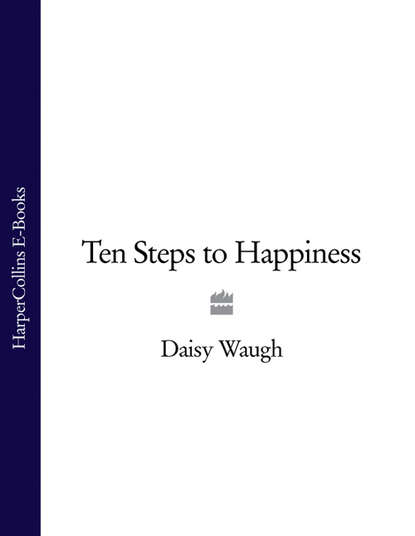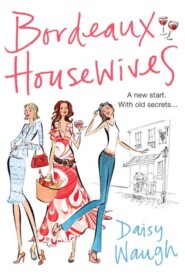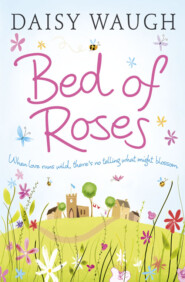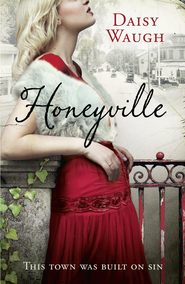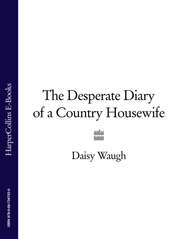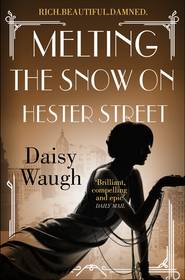По всем вопросам обращайтесь на: info@litportal.ru
(©) 2003-2024.
✖
Ten Steps to Happiness
Автор
Год написания книги
2018
Настройки чтения
Размер шрифта
Высота строк
Поля
But he underestimated how much she loved him. Jo Smiley knew all about creature comforts, as fine-looking, highly effective, well-connected thirty-one-year-old London PR women are prone to. Jo had spent a lot of time and clients’ money in some of the smartest restaurants and hotels in the world. But that was all in the past now. And anyway it wasn’t the point. She would have been happy with Charlie anywhere. Anywhere. To have found a companion like Charlie; unworldly, unpretentious, tall, dark, funny, wise, kind and handsome (of course) was without doubt the greatest luxury of all.
In fact when Jo looked at Charlie and imagined the bucolic life which lay ahead of them she felt light-headed with hope for the future. The house they would be living in was beautiful; crumbling and uncomfortable and an insatiable swallower of cash, but it was lovely, and destined shortly to be lovelier still. When they returned to England she and Charlie were going to set to work restoring it. She and Charlie were going to build a dream-place together. Not only that, they were going to make it pay.
So when they weren’t watching tortoises or doing all the other things which enhanced their perfect happiness, they were talking about the future of Fiddleford Manor. It had been home to Charlie’s family for over two hundred years and now it was theirs and to keep the roof from caving in and everything else from falling apart, they were turning the house into a business. They were going to open the place up as a refuge for anyone in hiding from an angry public, or a baying and bullying press.
Jo envisaged a stream of tearful popstars, politicians and football managers knocking at the Manor door. She envisaged comforting them in a newly refurbished kitchen. With green tea, and Cristal champagne (if they wanted). And home-made flapjacks, perhaps. She envisaged Fiddleford Manor becoming a part of modern mythology, a perfect haven where no media was admitted and where suffering celebrities had to plead to be allowed in.
‘I was thinking, Charlie – don’t you think,’ she said some time later, as they wallowed in the beach hut’s circular sunken bath, ‘we could have a sort of meditation room. With very, very quiet spiritual music playing. And candles. A sort of multi-denominational-non-faith-specific chapel effect. Because people are going to be feeling very troubled when they first arrive to stay with us. They might appreciate a nice, quiet place to sit and think…’
‘It’s an idea,’ Charlie said tactfully. ‘If that’s what you want. But the bedrooms are pretty big, remember. If they want peace and quiet they could just stay in their rooms—’
‘And do you agree, Charlie,’ said Jo, who hadn’t been listening, whose mind had already moved on, ‘I was thinking maybe we could ban anyone who’s been in Big Brother. On principle. Do you think? Or do you think that’s a bit mean and snobbish?’
‘Big brother,’ repeated Charlie vaguely. ‘In big brother…’
‘The telly programme.’
‘The telly programme…’ It didn’t ring any bells. ‘Anyway, we’re supposed to be open to anyone, if they need us. And if we can fit them in. That’s the whole point.’
‘Quite right. We’ll just have to hope and pray they never realise they need us. I had another idea, though. Lovely idea. We could wire the house so it’s all on the same sound system. With speakers in every single room – can you imagine? So you’ve got music which is really beautiful – upbeat-but-ethereal – and it’s playing everywhere! In the kitchen, the bathrooms, the hall. Everywhere. All over the house. Wouldn’t that be amazing?’
‘So upbeat ethereal in the multi-faith-non-specific chapel?’ he said, smiling lazily. ‘But with the volume turned very, very low?’
‘Non-faith-specific,’ she corrected. ‘You think it’s a stupid idea.’ She didn’t mind. She had a thousand new ideas for the refuge every day, and so did he. Some of them were practical – they were going to have to build a couple more bathrooms. Most of them were pretty stupid. ‘I think we should employ a pilates instructor, don’t you? Live-in. Nobody will want to go to a retreat which doesn’t do yoga and pilates, however much trouble they’re in.’
‘Grey McShane didn’t seem to mind.’
‘Grey’s different. I love him, but he’s a lunatic. And an alcoholic. And he came to stay when it was still a house and he wasn’t paying.’
‘He’s paying now.’
‘No, but he wasn’t then. Anyway he’s a friend, he doesn’t count…By the way I don’t suppose he mentioned anything to you about moving out did he, before we left?’
‘Not exactly, no. I think he and Dad are both assuming they’re going to stay on and help run the refuge, since it was partly their idea. Dad says he’ll move into the cottage, but I’d be surprised…’
‘Well.’ Jo shrugged. Grey wasn’t a problem. She felt less enthusiastic about sharing a house with her intractable father-in-law, who didn’t like her and never would make any attempt to hide it. But he was old and lonely. He’d lived at Fiddleford all his life. And Charlie, who loved him, was all the family he had left. So he thought she was – whatever he did think. She didn’t care. She thought he was a fascist buffoon. They squabbled virtually every time they spoke, but it was harmless enough. Sometimes she wondered if they both didn’t even enjoy it. Either way she certainly wasn’t going to force him out. ‘It doesn’t matter, does it?’ she said. ‘It’s not like the house isn’t big enough.’
‘Grey wants to pay to put high voltage electric fencing all around the park.’
She smiled. ‘Can’t blame him after what they put him through.’ She sighed. ‘Poor sod. I think we should find him a girlfriend.’
‘And I think,’ Charlie laughed, slowly leaning across the bath towards her, ‘with his track record he’s more than capable of finding one for himself…’
And they lapsed into silence, and through the opened windows the breeze softened, the turtles frolicked, and any thoughts of the past and the future slowly ebbed away…
Accident – an unplanned, uncontrolled event with the potential to cause injury, damage or other loss.
Control or control measure – an item or action designed to remove a hazard or reduce the risk from it.
Reportable accident – one that must be reported to the appropriate enforcement authority.
Health and Safety First Principles Workbook, Chartered Institute of Environmental Health
(i) UTILISE A SAFETY-FIRST ENVIRONMENT (#ulink_a29d2673-b143-5343-98ba-bcb05df28aa7)
Spring 2001
Fiddleford Manor lay deep beneath snow. The boiler was broken, the house was freezing, the roof was leaking and there was a policeman at the bottom of the drive. Jo and Charlie had returned from their Mexican honeymoon only three weeks earlier, besotted, euphoric, absolutely one hundred per cent in love. And yet, as she looked out at the frozen landscape and the heavy, grey, endless sky, she thought for the first time of the perspex desk she had left in Soho, and of the low-fat, high-concept working lunch she would have been enjoying at exactly this moment six months ago, and briefly, treacherously, found herself wondering if she might have been better off staying in London, where mass cullings never interrupted the running of things, and where there was always emergency hot water at the gym.
A ludicrous thought, of course. And wrong, too. Jo loved her new life. She loved her new husband – of course. And she loved her old house.
It would have been difficult not to. Fiddleford Manor, built from the warm red local stone nearly three hundred years ago – vast, elegant and mostly held together by ivy – nestled magnificently inside its own landscaped park and, beyond that, a small and unspoilt and entirely unprofitable agricultural estate. There was a rose garden and a small lake with an old rowing boat to one side of the house, and a decrepit Victorian stable yard with its own broken clock tower on the other; at the front the long, wide lawns stretched past one towering cedar tree and the occasional jungle-like rhododendron all the way to the river bank. The house was a mile from the local village, where there was a church and a school and a small shop, four miles from the market town of Lamsbury and thirty-seven miles from the nearest train station, in the neighbouring county of Devon.
But right now Devon, like everywhere else, was out of bounds. The whole world was out of bounds. Ever since the man from Trading Standards had managed to struggle up the drive, with his appalling lilac-coloured office shirt, his appalling ‘Form A’, and his disinfected Wellingtons, it had been against the law for anyone to come on to or off the estate without a licence. And what with everything else that was going on, the entire countryside and every bureaucrat related to it in tailspin, no one had seen fit to grant a licence to the plumber. So the inhabitants of Fiddleford, Jo, Charlie, their difficult friend Grey McShane, and Charlie’s difficult father the General, huddled together in the kitchen, shivering and waiting.
They had been waiting for three days now. Or five days if you counted from the first telephone call, which was when everything really started changing. It came as they were finishing dinner. The General, who was meant – though he still showed no signs of it – to be in the process of moving into a large cottage at the end of the drive, had said, ‘Who the bloody Hell calls at this hour?’ and Charlie had gone off to find out. He came back into the dining room twenty minutes later, looking very bleak.
‘MAFF,’ he said simply.
Nobody spoke.
‘They’ve found a case of foot and mouth at Tom Shattock’s place. They’re sending a man round here in the morning.’
His father groaned.
‘But, listen, you never know.’ It sounded very hollow. ‘We might be fine…We might be absolutely fine.’
‘Poor old Shattock,’ murmured the General. ‘And it’s definite is it? Confirmed case?’
Charlie nodded. ‘Plus there’s another one suspected. It’s definite all right.’
The morning after that, while a Ministry vet inspected their cattle, Charlie led the lilac-coloured Standards man into the library. He’d wanted to know the exact whereabouts of every livestock animal on the estate: for ‘future reference’, he said; ‘in the event of evidence leading us to suspect…’ But they both knew what that meant. Charlie had been as helpful as he could. Or as he could bear to be.
He listed everything. Every single one of their 542 sheep, including the pregnant ewes, the three-day-old lambs, the seventeen rare and precious Dorset Horns. He told the man about his prize-winning dairy herd, and about his magnificent Jersey bull. He even mentioned his beloved twin sister Georgie’s billy goat which since her shocking death (in a riding accident a year and a half ago) had been bought a nanny companion and allowed to roam freely among the animals.
‘And that’s it?’ said the lilac man, clicking the top of his stainless steel pen and slipping it neatly into his lilac pocket. ‘Nothing else? No pigs?’
‘No.’
‘No new calves unaccounted for?’
‘No. None I haven’t mentioned.’
Lilac man offered a measly smile: ‘No nasty surprises lurking in forgotten corners anywhere? It’s a sizable estate.’
Charlie averted his eyes. He was a rotten liar, and he hated lying, but there were two animals he’d left out, whose existence at that particular moment was causing his body to break out in a cold sweat. Caroline and Jasonette, an ancient couple of Highland cows, had been wandering the park at Fiddleford ever since he and his twin sister were ten. They had been delivered, all those years ago, as a birthday surprise from their mother: twin calves, one for each of her twins. He and Georgina used to spend hours with them during the holidays, lounging around on their hairy backs, taking them on picnics (or taking picnics on them). They pinned photographs of their cows on their bedroom walls at school.
Once, when the twins were still small, and the cows were still calves and the sun was always shining and his twin and their mother were still alive, someone had left the front door open and both animals had been discovered looking bewildered, side by side in the middle of the hall. Their mother (the General had been away at the time, or it never would have happened) hadn’t yelled about the valuable paintings or the boring Japanese urn on the side table. She’d behaved as if everything was completely normal, as if the two little calves were making a perfectly ordinary social call.





